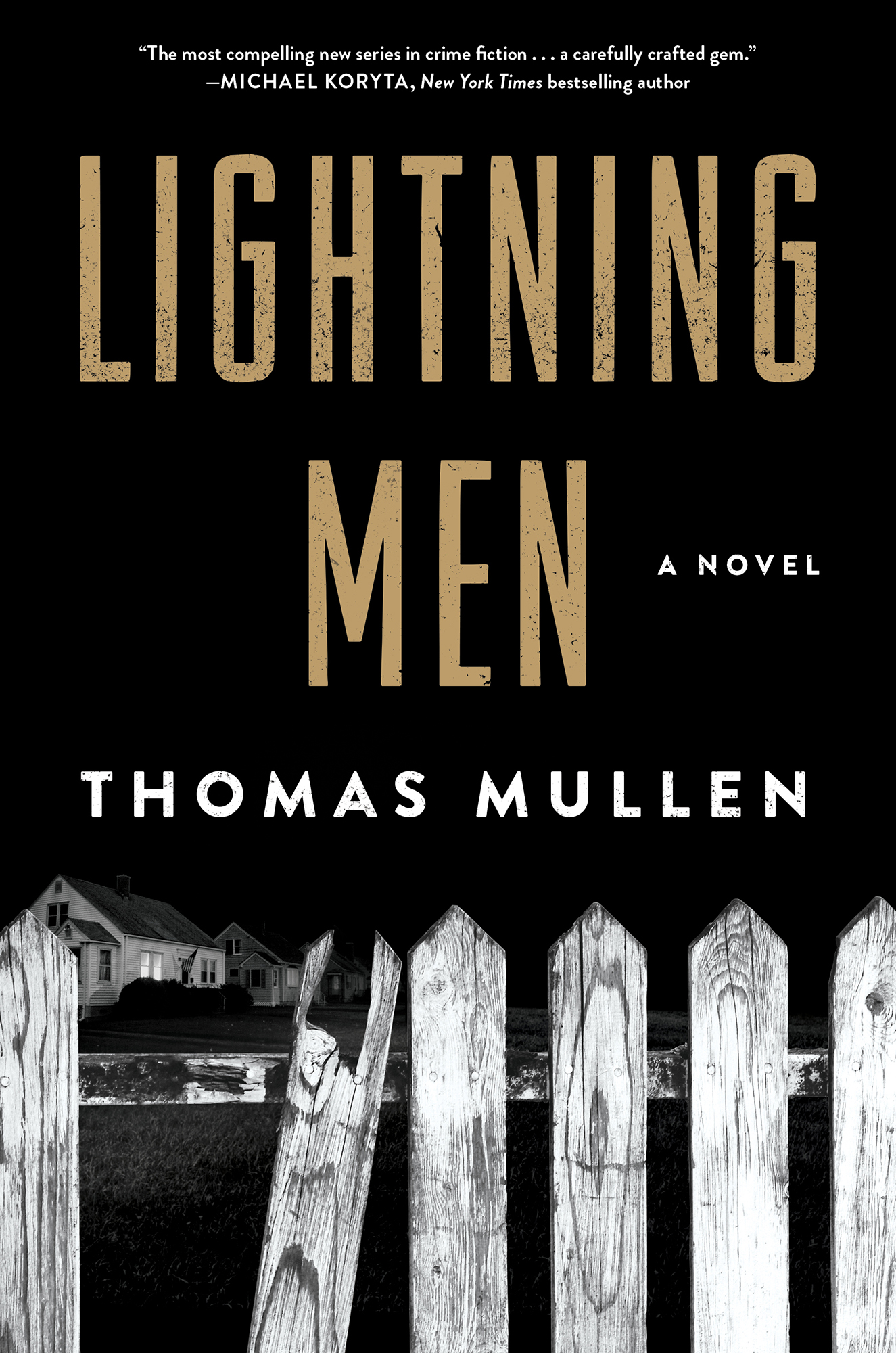
Lightning Men
A Novel
- اطلاعات
- نقد و بررسی
- دیدگاه کاربران
نقد و بررسی

Starred review from July 24, 2017
Set in 1950, Mullen’s outstanding sequel to 2016’s Darktown showcases the difficulties of effectively policing the mean streets of Atlanta when some cops belong to the Ku Klux Klan. Denny Rakestraw, who’s not a Klan member, is distrusted by his fellow officers for his suspected role in the disappearance of his former partner. Denny’s problems increase when his Klansman brother-in-law, Dale Simpkins, gets involved in a plot to stop the influx of African-Americans into his neighborhood. The personal and the professional also intersect for Lucius Boggs, one of the city’s first black officers. They are not only not allowed to arrest whites but are “barely even supposed to interact with white people,” which proves troublesome when Lucius and another black cop, Tommy Smith, start to investigate a moonshine smuggling ring that turns out to include some white men. Meanwhile, the release from prison of the father of Lucius’s fiancée’s child creates personal complications for Lucius. Mullen again brilliantly combines a suspenseful plot with a searing look at a racist South. Agent: Susan Golomb, Writers House.

July 15, 2017
This knotty, multilayered thriller set near the cusp of the civil rights movement illustrates how crime and punishment in racially segregated Atlanta could be far more complex than relatively simple matters of black and white.Though it has since labeled itself "the city too busy to hate," Atlanta in 1950, as depicted in Mullen's follow-up to Darktown (2016), is a grim, wary Southern citadel where racial prejudice is embedded in the local psyche. Since a segregated citizenry is patrolled by a segregated police force, African-American police officers such as straight-laced preacher's son Lucius Boggs and his more street-wise partner, Tommy Smith, struggle to keep the peace in the volatile, predominantly black community known as Darktown. Meanwhile, Denny Rakestraw, a white policeman who doesn't like racists but goes along with custom in order to get along with his fellow officers, is able to move his family to a relatively bucolic residential area called Hanford Park, where tensions are rising over its first African-American homeowners. Matters are complicated when the grass-roots drive to force the families out is abetted by local Nazis who are so far to the right, they think the Ku Klux Klan, of which Denny's brother-in-law Dale is a short-fused, dull-witted member, is too soft on integration. While Hanford Park simmers, Darktown explodes in street fights and shootouts over the distribution and sale of drugs and bootlegged liquor (aka "white lightning") in the black neighborhood. As disparate as these events seem on the surface, their myriad ramifications intersect, involving the families--and destinies--of all three policemen struggling in different ways to keep the peace. As is the case with such novels, Mullen's narrative has to contend with the demands of both the mystery and historical fiction genres. The blend isn't always neatly balanced. But Mullen proves himself throughout to be a savvy, observant, and empathetic chronicler of a city's struggle to reconcile its warring impulses with the looming imperatives of social change. This volume, together with its predecessor, suggests strongly that Mullen is working on an epic of mid-20th-century American transformation. If so, the growth of his three protagonists promises to be both fascinating and painful to watch.
COPYRIGHT(2017) Kirkus Reviews, ALL RIGHTS RESERVED.

April 15, 2017
Mullen triumphed with last year's Darktown, a LibraryReads pick and Los Angeles Times Book Prize finalist set in 1948 Atlanta, where Lucius Boggs and Tommy Smith are among the first African American officers in the police department. Now it's 1950, and tensions arise when Smith's sister and brother-in-law move into the all-white neighborhood where fellow officer Denny Rakestraw lives.
Copyright 2017 Library Journal, LLC Used with permission.

Starred review from July 1, 2017
The second in the Darktown series presents another searing view of racial tensions in Jim Crow Atlanta, as seen through the lenses of two Negro Officers, Lucius Boggs and Tommy Smith. Boggs and Smith work the Darktown area of Atlanta, with nothing but resolution to support them. They can't drive squad cars outside Darktown; they can't wear their uniforms to or from work; they have to call in white officers for anything more than a simple arrest; they can never arrest white people. And that's just the official stuff; on the street, white cops do things like drive their squads straight at them when they're on foot. It's 1950, and the partners are investigating a white-lightning (moonshine) and drug-dealing operation of massive proportions, but if they give their information to the white officers, it's likely to be ignored. This sequel expands the view of racism even more than its predecessor (Darktown, 2016) by including a white officer, Rakestraw, a nonracist saddled with a Klansman brother-in-law who wants protection. The efforts of Boggs and Smith and Rakestraw to function within a wildly corrupt police force (at the time, many white Atlanta officers belonged to the KKK) are both riveting and heroic. Mullen effectively uses the police-procedural format to shine a light on the daily indignities and violence blacks suffered in the precivil rights South, while delivering a plot that never lets up on suspense.(Reprinted with permission of Booklist, copyright 2017, American Library Association.)




دیدگاه کاربران